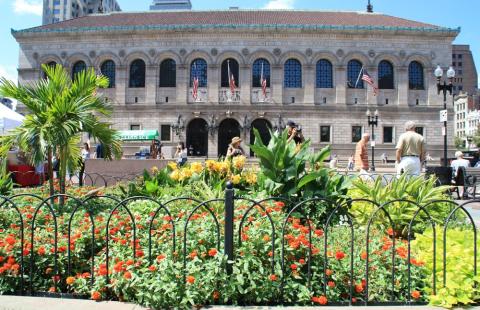What were the specific goals of this creative economy project? Describe the community development challenge or opportunity that your project was designed to address:
The goal is to shed light on Boston as the hub of literary activity that it is and thereby make it an economically friendlier place for literary artists and those involved in bringing literary works to light. Boston has a very active literary scene that has been going under-recognized. People associate Boston with history but not as a home for those involved in the literary arts or those interested in literary pursuits. The creation of the Literary Cultural District should help in defining the city as a beacon of contemporary literary pursuit. Boston: Common, Red Sox, Cream Pie, Baked Beans, Literary District.
If the goals change over time, please describe how:
The Lit District is only a couple of months old. We are still feeling our way into the mission and have not changed any goals as of yet.
Who was involved in this project and what did they do? (be sure to include the partners from outside of the creative sector and how local voices were included):
There are currently eight executive partners:
City of Boston: The State mandates that it's a municipality that must apply for cultural district status. Technically speaking, the Lit District is the City's.
GrubStreet: Managing Executive Partner.
Boston Public Library
Boston Athenaeum
Boston Book Festival
Emerson College
Suffolk University
The Drum (an audio-literary magazine)
There are also about three dozen associate partners (see website) that range from literary organizations to neighborhood civic groups.
How does this project relate to a larger community development strategy?
The cultural districts initiative instituted by Massachusetts a few years ago is designed to help cities and towns enhance their economic activity by drawing people in by pointing to the municipality's cultural assets. The Commonwealth currently has 26 cultural districts spread throughout the state. The Literary District is the first "themed" district -- the first district to focus solely on one artistic discipline.
What projects or places, if any, inspired your approach to this creative economy project?
It was a combination of the Massachusetts Cultural Council starting the cultural districts initiative and the fact that the visual arts get the lion's share of attention (and funding) that led various leaders in the literary arts to seek to create a strictly literary district. This is a unique endeavor born, in part, out of frustration about a lack of attention to the literary arts scene in Boston.
